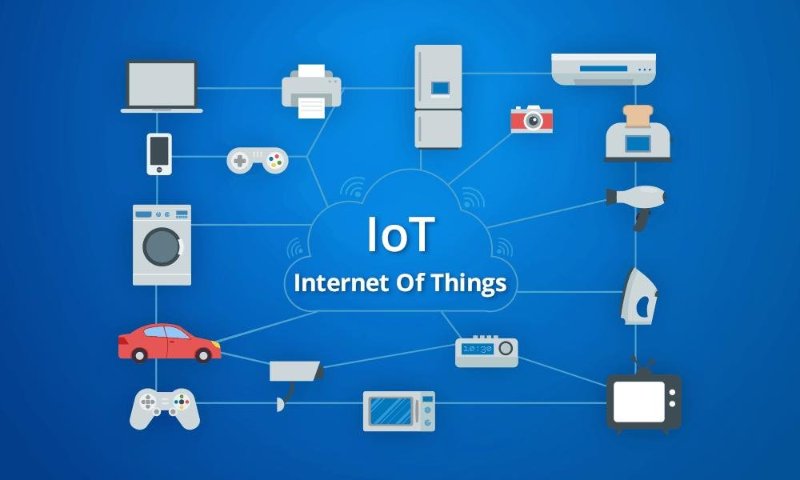IoT needs no introduction and its benefits are transforming processes and businesses even as we speak. In the list of beneficiaries of this disruption is a long list of businesses that have been able to both mine and leverage data like never before. Such data-centric decision-making is affecting both product roadmaps as well as the nature of consumption. On the plus side, employee productivity, collaboration, communication channels have all been positively impacted too.
Factors that stand out here are the velocity with which the shift is happening, the room for transitioning that organizations can afford before they become obsolete, and ultimately the revenue cycles. In that regard, what really remains constant is the fact that the world’s pace of churning innovation is faster than it used to be. And, businesses benefit by staying ahead of the curve.
- Redefined productivity
IoT’s role in increasing the number of tasks that can be done is phenomenal. In addition to the effort, the depth and the quality of the tasks that are being improved and the reduction in the frequency of failure are all factors that have contributed to an improvement in productivity given how abundant the data derived really is. Added to this, the effort stands multiplied since remote workers are increasingly empowered with virtual offices that let them collaborate and work unitedly upon.
Besides the number of hours put in, the output achieved in individual sprints is also at its optimal best, since teams have better work-life balance and are, as a result, willing to go the extra mile for the team. IoT fuelled improvement in productivity, is also sustainable, making it a compelling case for businesses to invest in the technology, given how this is still the nascent stage of the technology and the benefits realized are only going to multiply in the coming years.
- Seamless Project Portfolio Management
Effective portfolio management rests on collaborating seamlessly and making effective choices all along. While the academic understanding of the methodology and the implications of it are very detailed, the crux of it remains to be value-driven resource allocations, viable project choices and long-term strategic alignment. IoT improves all of these elements and thus becomes an effective instrument to improve your project portfolio, on the whole. In fact, that perfectly explains why businesses are investing in a project portfolio management software solutions.
With IoT, decision-making transitions into being data centric to the point that customer-centricity and benefits realization become the core drivers of decision-making rather than the unidirectionality of basic feasibility studies. For example, the network of devices that your users subscribe to is a data mine that not only tells you what your next steps should be but also guides your path toward achieving them in the most cost-effective ways.
- Enhanced customer centricity
Adding to the point above, data extracted about customers is extremely useful to actually assess consumer behavior as well as shape products around. While the ongoing debate on the ethics and extent of the data’s usability is the subject of a different article altogether, what really stands out is how the data you extract can be leveraged in strategic decision-making – areas that traditionally relied on a round of ‘trial and error’.
Consumer behavior and requirements, habits, and preferences are core essentials to actually envision and produce a product that can compete in today’s market. IoT both draws from and fuels this cycle of data. Besides, knowing your target market inside out, you will be able to understand how you can use this information to actually draw a competitive strategy around features and functionalities that will future-proof your product.
- Overall improved data efficiency
Ultimately, the internet has constantly enhanced the quality of data we’ve been consuming. This is applicable for both the creators and consumers of information. Along the way, the quality, quantity, and multifunctionality of data have all been revolutionized, which has made devices, smarter than ever before. As a result, customer demographics, interest profiling, intent analysis get derived in great depth and the data that is being used to base decisions upon is being revolutionized.
Moreover, consumers are also very liberal with the information that they’re willing to share, thereby also creating content on their own, along the way. This whole ocean of rich data has led to a landscape of cash-rich businesses and products that have remarkably improved quality of lives. In addition, given the kind of information people share amongst one another, buyers are also very aware of the reviews and quality of products they consume. This further pushes brands to compete fiercely and really earn their market share. Ultimately, IoT only strengthens data’s role as the ultimate winner.
So this points the question towards you. How have your profiled your portfolio to allocate resources towards likes of futuristic technology and do you think that their benefits add up? Tell us your stories!
About the Author
As the subject-matter expert of Project Management at Saviom Software, Aakash Gupta has to his credit publications on industry trends and management practices. You can connect with him here.












